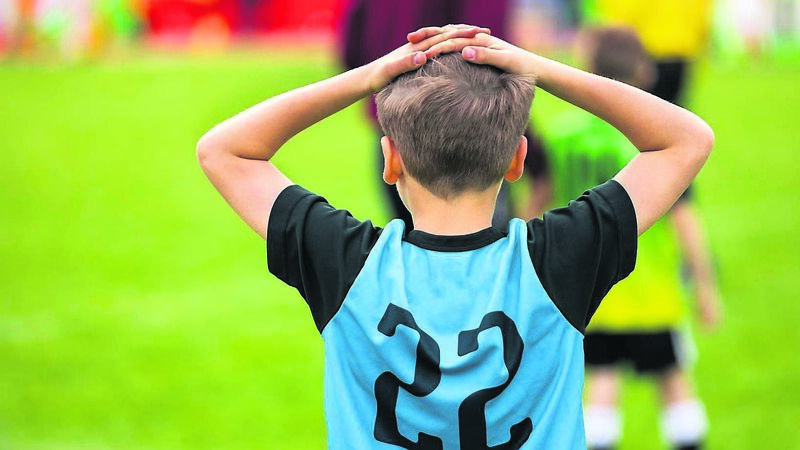'Children going into fight or flight mode': Exclusion in sport can easily lead to trauma for kids

Intensely negative reinforcement should not be mistaken for constructive criticism when it comes to coaching kids.
A CORK-based psychotherapist has spoken about seeing children in need of professional help being benched multiple times and suffering intense criticism from coaches.
Dr Susan Lawlor co-founded mental-health initiative, State of Mind Ireland, with her brother, the late Dr Martin Lawlor, in 2013, to improve mental health and the working life of sports players and sporting communities.
The joint initiative with University College Cork (UCC), the Health Service Executive (HSE), and the Centre of Recovery and Social Inclusion (CRSI) consisted of State of Mind Ireland and the team striving to improve mental health and wellbeing in sport.
Based in Victoria Cross, Dr Lawlor deals with children and adults of all ages. She said that a number of parents with children involved in sports have reached out to her with serious concerns.
She added that young players being benched and constantly excluded has resulted in emotional trauma for some children.
Dr Lawlor warned that intensely negative reinforcement should not be mistaken for constructive criticism.
She explained that some former underage players as old as in their forties are enlisting her help due to the scarring effects of sport-related incidents.
The mental health advocate described how the pressures facing children in sport are hindering Ireland’s potential future sports stars.
“GAA and other sporting communities bring children together and help develop social, emotional and interpersonal skills and communication skills,” Dr Lawlor said. “They help kids, in particular, to become more resilient because sport instills that sense of independence and how to play independently as well as part of a team.
“However, because the GAA and other sporting avenues have become so competitive, subconsciously or unconsciously, this has seeped into the psyche of the coaches.
“Whether these are young kids or in essence adolescents, there is a lot attached to that status of being a sports player. There are also a lot of benefits to being a player.
“However, when the competitive streak gets thrown into the mix - like with everything - certain things can fall through the cracks.”
She stressed that something needs to be done to ease pressure for children involved in sport.
“It should be a case of when they are younger everything is for fun.
“At this age, sport builds their strength and mental fitness. However, I am seeing children going into ‘fight or flight’ mode.
“This occurs when the mind reacts to feeling under threat. It can result in kids acting out on the pitch or reacting in a negative fashion in school. A lot of children are asking themselves ‘why me?’
"The effects can result in a child self-isolating in their bedroom and not talking to anyone or responding to their parents and friends.”
She remarked on how trauma can follow children into adulthood.
“I have seen older adolescents and young adults come to me in addition to people in their twenties, thirties and forties.
“They still remember the non-constructive critical comments made by adults who should have known better.
“This has impacted their psyche, self-image and state of mind in a negative capacity. From a very young age they have believed they are not good enough.
"I am seeing a lot of cases in young girls where it can, in very severe cases, lead to body dysmorphia, bulimia, and anorexia. It happens with boys too because they are in essence seeing a reflection that is not real - for want of a better word.”
The mental health professional emphasised the need for children to be supported.
“Telling a child they are being benched for the next five matches is not constructive criticism.
“It should be the case that we are supporting children and helping them become more engaged so that they can grow more organically as players.”










 App?
App?


